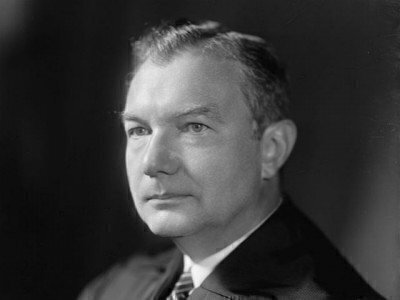With all of the recent attention given to the Electoral College, not a lot has been written by the Supreme Court on the unique electoral institution - mostly because the Court has had few opinions about it in the past 226 years.

A search of the historical Supreme Court opinions database at www.courtlistener.com shows that the words “electoral college” have appeared just 23 times in the thousands of opinions written by the Justices since 1790.
There are two significant cases related to the Electoral College not including the 2000 Bush v. Gore decision, which was more about the process of counting presidential ballots in Florida than the legitimate function of the Electoral College.
In particular, a scathing dissent by a legendary Justice from the early 1950s, Robert H. Jackson, contains the most words about the Electoral College’s legitimacy in a court opinion. But as a whole, the constitutional propriety of the Electoral College hasn’t been debated as an issue at the Court.
In 1892, Chief Justice Melville Fuller wrote on behalf of the Court in McPherson v. Blacker. The case came to the Court as a dispute between the Michigan legislature and Congress about which body named the date that the Electoral College met in Michigan. Fuller’s per-curium opinion, which he only signed for the majority, ruled for Congress, and it contained some background information about how the Court viewed the Electoral College. McPherson v. Blacker also found that states determined how electors were apportioned within each state and how they were chosen – a point later reaffirmed in Bush v. Gore.
Fuller duly noted that the expectations for the Electoral College had changed in the prior 100 years or so. “Doubtless it was supposed that the electors would exercise a reasonable independence and fair judgment in the selection of the Chief Executive, but experience soon demonstrated that, whether chosen by the legislatures or by popular suffrage on general ticket or in districts, they were so chosen simply to register the will of the appointing power in respect of a particular candidate,” he said. “But we can perceive no reason for holding that the power confided to the States by the Constitution has ceased to exist because the operation of the system has not fully realized the hopes of those by whom it was created.”
Two other Justices, Stanley Reed and the aforementioned Jackson, dealt squarely with the Electoral College in Ray v. Blair, a 1952 decision about the requirement that Alabama state Democratic party electors take pledges to vote for candidates in the Electoral College. In a per-curium majority opinion not signed by other Justices, Reed wrote that “the Twelfth Amendment does not bar a political party from requiring the pledge to support the nominees of the National Convention. Where a state authorizes a party to choose its nominees for elector in a party primary and to fix the qualifications for the candidates, we see no federal constitutional objection to the requirement of this pledge.”
Reed and the majority, however, didn’t rule on whether pledged electors could be forced to vote for a party’s candidate during the actual Electoral College proceeding.
Justice Jackson, joined by Justice William O. Douglas, made a full-on assault on the Electoral College in general, and had no problems with an elector voting his or her conscience. “No one faithful to our history can deny that the plan originally contemplated, what is implicit in its text, [is] that electors would be free agents, to exercise an independent and nonpartisan judgment as to the men best qualified for the Nation's highest offices,” Jackson said.
Jackson then cited a line from Gilbert and Sullivan’s HMS Pinafore:
“Electors, although often personally eminent, independent, and respectable, officially became voluntary party lackeys and intellectual nonentities to whose memory we might justly paraphrase a tuneful satire: They always voted at their Party's call. And never thought of thinking for themselves at all.”
“As an institution the Electoral College suffered atrophy almost indistinguishable from rigor mortis,” he concluded.
In Bush v. Gore, the main unsigned majority per-curium opinion discussed the Electoral College in light of the McPherson v. Blacker decision from 1892.
“The individual citizen has no federal constitutional right to vote for electors for the President of the United States unless and until the state legislature chooses a statewide election as the means to implement its power to appoint members of the Electoral College,” it said. “This is the source for the statement in McPherson v. Blacker that the state legislature's power to select the manner for appointing electors is plenary; it may, if it so chooses, select the electors itself, which indeed was the manner used by state legislatures in several States for many years after the framing of our Constitution.”
The Bush v. Gore majority found that states could allow voters to choose electors and if they did so, the process needed to be fair with “equal weight accorded to each vote and the equal dignity owed to each voter.” The court also said that states retained the ability to “take back the power to appoint electors” from voters and return it to the legislatures, as happened in the early days of our republic.






